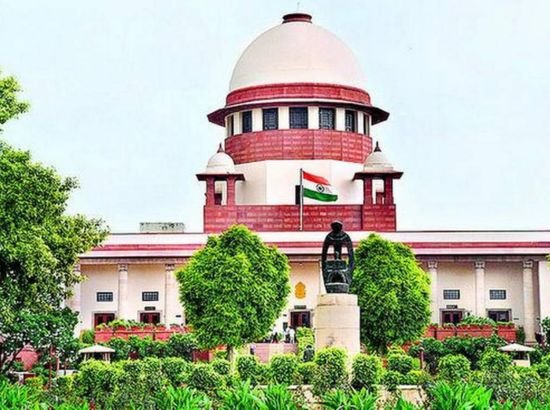
Waqf Act: Centre Files Affidavit in Supreme Court, Seeks Dismissal of Petitions Challenging Its Validity
The central government on Friday submitted a preliminary affidavit in the Supreme Court seeking the dismissal of petitions challenging the constitutional validity of the Waqf (Amendment) Act, 2025.
The affidavit was filed by Sherisha C. Sheikh Mohideen, Joint Secretary in the Ministry of Minority Affairs. According to a report by ANI, the 1,332-page affidavit strongly opposed any injunction on the provisions of the Act, stating that it is a settled legal position that constitutional courts cannot directly or indirectly restrain a statutory provision and must ultimately decide the matter through a final verdict.
Defending the controversial law, the Centre highlighted a significant increase in waqf land—claiming that since 2013, over 20 lakh hectares (20,92,072.536 hectares) had been added under waqf properties, which it described as “astonishing.”
The government argued that withdrawing legal protection from “waqf-by-user” claimants does not prevent any individual from the Muslim community from declaring waqf status over a property through proper legal means.
The affidavit further stated that a “deliberate, motivated, and misleading narrative” has been circulated, creating the false impression that waqf claimants—particularly those without supporting documents—would be negatively affected. The Centre called this claim “not only false and baseless but a deliberate attempt to mislead the court.”
The government clarified that under Section 3(1)(r) of the Act, there is no requirement for a trust deed or documentary proof to be recognized as “waqf-by-user.” The only mandatory requirement to gain such protection is registration of the waqf by April 8, 2025, as registration has always been a legal necessity under waqf laws for the past century.
On April 17, the Centre had assured the Supreme Court that it would neither de-notify waqf properties, including “waqf-by-user,” nor make any appointments to the Central Waqf Council or state waqf boards until May 5.
A bench led by Chief Justice Sanjiv Khanna will hear the matter and interim orders on May 5.